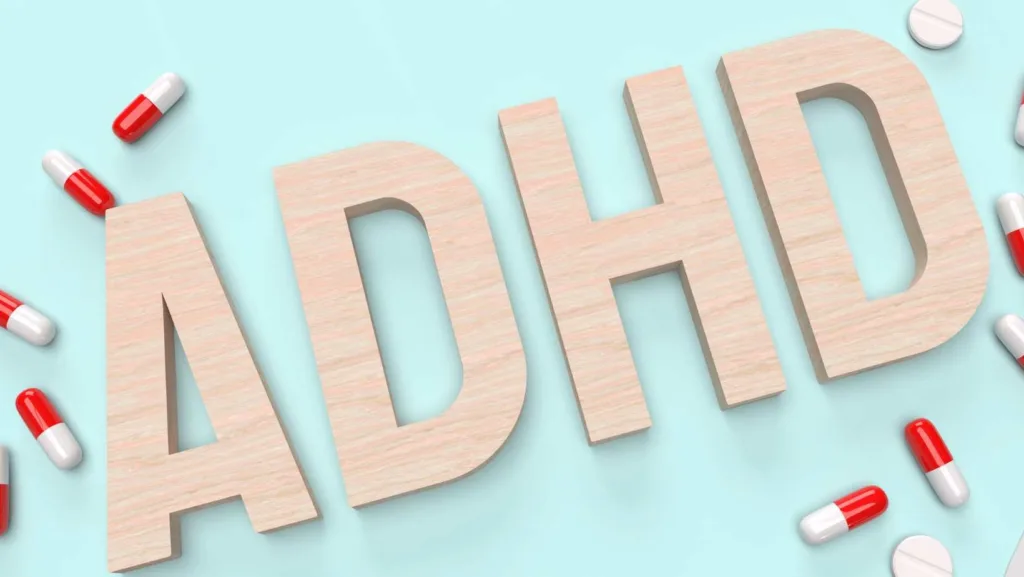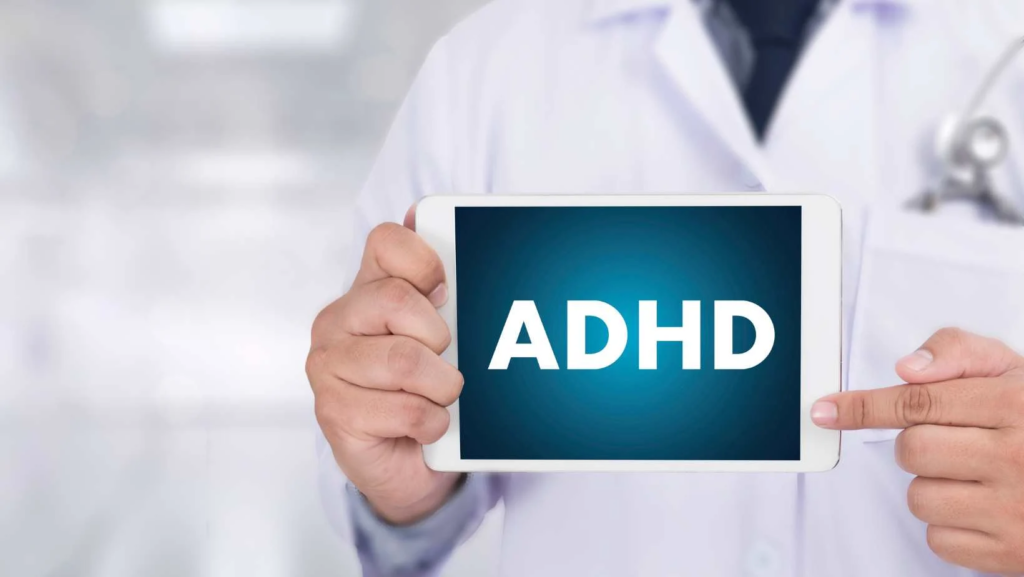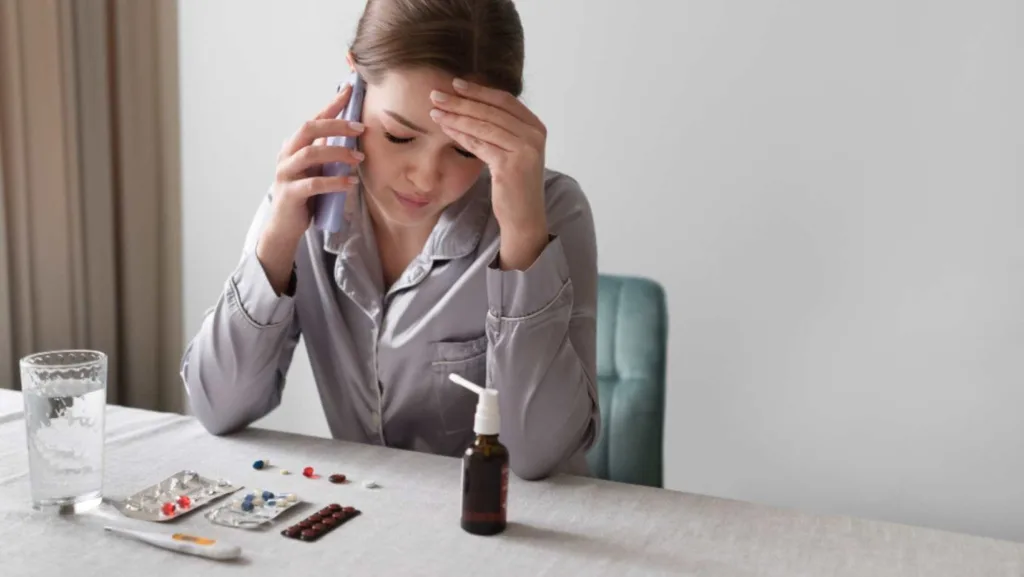ADHD, or Attention Deficit Hyperactivity Disorder, presents a complex array of symptoms, including inattention, hyperactivity, and impulsivity. While medication is often prescribed as a primary treatment for ADHD, ADHD medication is considered the most common treatment and is often the first line of ADHD treatment. Medications are a common treatment, but it can take several weeks to find the most effective option, and some people seek alternatives due to side effects or personal preference.
Fortunately, there are numerous effective strategies and techniques for managing ADHD without medication, ranging from behavioral therapies to lifestyle modifications.
Let’s take a closer look at these non-medication approaches and provide practical tips for those struggling with ADHD.

What is ADHD?
In order to understand non-medication options for ADHD, it’s essential to have a basic understanding of the condition. ADHD can manifest differently in individuals, but common symptoms include difficulty focusing, impulsivity, hyperactivity, forgetfulness, and disorganization.
Research suggests that imbalances in brain chemicals, such as dopamine and norepinephrine, are linked to ADHD, and that other possible causes include genetic and environmental factors.
These symptoms can significantly impact various aspects of daily life, including academic or work performance, relationships, and self-esteem. It’s crucial to recognize that ADHD is a legitimate medical condition that requires appropriate management.
Managing ADHD without Medication
1. Behavioral Therapies:
Behavioral therapies focus on identifying and altering behavior patterns to manage symptoms and treat ADHD in both children and adults. Behavioral therapies are effective ways to treat ADHD and manage symptoms, helping to improve ADHD symptoms and daily functioning.
- Cognitive Behavioral Therapy (CBT): CBT helps individuals identify negative thought patterns and develop strategies to change them. It can be particularly beneficial for addressing issues such as low self-esteem, anxiety, and perfectionism commonly associated with ADHD. CBT also focuses on helping both kids and adults maintain attention and manage impulsive actions.
- Behavioral Modification Techniques: These techniques involve using rewards and consequences to encourage positive behaviors and discourage negative ones. For example, implementing a token economy system where individuals earn rewards for completing tasks or exhibiting desired behaviors can be effective.
- Parent Training Programs: Parents of children with ADHD can benefit from training programs that provide guidance on managing behavior, setting limits, and promoting positive interactions. These programs empower parents and kids to work together to improve ADHD symptoms and manage symptoms at home. Teachers can also be involved in behavioral interventions to help manage symptoms at school. Behavioral therapy is considered the first line of treatment for children with ADHD before medication is introduced.
- Family Therapy: Family therapy can help improve family dynamics and support the child in managing ADHD by involving parents, siblings, and the child in joint therapy sessions and parent education.
2. Lifestyle Modifications:
Making lifestyle changes can significantly impact ADHD symptoms and overall well-being.
- Diet and Nutrition: While there’s no specific ADHD diet, maintaining a balanced diet rich in nutrients such as omega-3 fatty acids, protein, and complex carbohydrates can support brain health and improve focus and concentration. Additionally, some individuals may benefit from avoiding certain foods or additives that can exacerbate ADHD symptoms. Some vitamins and nutritional supplements may also support brain health and potentially improve symptoms, but it’s important to consult a healthcare professional before use.
- Exercise and Physical Activity: Exercising regularly can help reduce hyperactivity and improve mood in individuals with ADHD. Engaging in activities such as jogging, swimming, or yoga can help regulate energy levels and promote relaxation.
- Sleep Hygiene: Establishing a consistent sleep schedule and practicing good sleep hygiene habits can improve attention, mood, and overall functioning. Adequate sleep is crucial for individuals with ADHD as sleep disruption can intensify symptoms.
- Screen Time: Monitoring screen time is important, as excessive screen time may worsen symptoms in some individuals with ADHD. However, certain assistive technologies and tools that use screens can also support attention and organization when used appropriately.
Tip: If you’re seeking comprehensive support and guidance in managing ADHD without medication, consult with an expert like Shawn Phillips can be highly beneficial. With his expertise in mental health coaching, nutrition coaching, and personal training in Los Angeles, Shawn offers a holistic approach to addressing ADHD symptoms.
Whether you prefer in-home mental health coaching or online mental health coaching, he provides personalized strategies and techniques tailored to your unique needs and challenges. At Shawn Phillips Training, you can access a wealth of knowledge and resources to navigate ADHD with confidence and resilience.

3. Environmental Adaptations:
Creating an organized and supportive environment can help individuals with ADHD stay focused and productive.
- Organization Strategies: Implementing organizational systems such as color-coded calendars, to-do lists, and designated storage spaces can help individuals keep track of tasks and belongings. You can also make tasks less overwhelming by breaking them down into smaller, manageable steps.
- Time Management Techniques: Using tools like timers, alarms, and scheduling apps can help individuals manage their time effectively and stay on track with deadlines and appointments. Individuals with ADHD may be more likely to miss deadlines due to difficulties with organization and time management.
- Minimizing Distractions: The goal is to minimize distractions by creating a distraction-free workspace and minimizing clutter, which can help individuals maintain focus and concentration. Noise-canceling headphones, white noise machines, or background music can also help drown out distractions.
Related Articles:
4. Mindfulness and Relaxation Techniques:
Practicing mindfulness and relaxation techniques can help individuals with ADHD reduce stress, increase self-awareness, and improve impulse control.
- Meditation: Mindfulness meditation involves being present in the present moment without judging it. Regular meditation practice can help individuals cultivate a greater sense of calm and mental clarity. For those with ADHD, mindfulness meditation is especially beneficial for practicing paying attention to the present moment, which may improve focus and reduce stress.
- Deep Breathing Exercises: Deep breathing exercises can help reduce feelings of anxiety and promote relaxation. Techniques such as diaphragmatic breathing or square breathing involve taking slow, deep breaths to activate the body’s relaxation response.
- Yoga and Tai Chi: These mind-body practices combine physical movement with breath awareness and meditation. Practicing yoga or Tai Chi regularly can improve flexibility, balance, and concentration while promoting a sense of inner peace.
Managing ADHD and Mental Health
Managing ADHD and mental health requires a comprehensive, multimodal treatment plan that addresses both the core symptoms of ADHD and any co-occurring conditions, such as anxiety or depression.
ADHD symptoms can often intensify stress levels and make it harder to cope with daily challenges, so it’s important to prioritize mental health alongside other treatments. Mindfulness meditation training has proven to be highly effective in helping individuals reduce stress, improve focus, and stay calm in the present moment.
Support groups offer a valuable space for sharing experiences and learning from others, while also providing encouragement for family members who are supporting a loved one with ADHD. Therapy, whether individual or family-based, can help address emotional challenges and teach coping skills.
By combining these approaches—therapy, mindfulness, support groups, and a personalized treatment plan—individuals can reduce ADHD symptoms, manage anxiety, and improve their overall mental health.
Practical Strategies for Daily Management of ADHD
In addition to the above approaches, incorporating practical strategies into daily life can help individuals with ADHD thrive. These practical strategies can help manage symptoms and improve daily functioning.
1. Creating Routines and Structures:
Establishing consistent routines and schedules can provide a sense of predictability and stability, making it easier to manage tasks and responsibilities.
2. Breaking Tasks into Manageable Steps:
Breaking down larger tasks into smaller, more manageable steps can make them feel less daunting and increase the likelihood of completion.
3. Using Visual Aids and Reminders:
Visual aids such as calendars, checklists, and sticky notes can serve as helpful reminders and organizational tools. Setting alarms or reminders on smartphones or smartwatches can also help individuals stay on track with appointments and deadlines.
4. Utilizing Assistive Technologies:
Technology tools such as task management apps, electronic organizers, and speech-to-text software can assist individuals with ADHD in managing their time, tasks, and information more efficiently.
5. Seeking Support from Family and Friends:
Building a support network of family members, friends, or support groups can provide emotional encouragement and practical assistance when needed.
6. Advocating for Accommodations at Work or School:
Individuals with ADHD may benefit from accommodations such as extended time on tests, preferential seating, or access to assistive technology in educational or work settings. Advocating for these accommodations can help level the playing field and support academic or professional success.

Improving Relationships and Daily Functioning
For people with ADHD, building strong relationships and managing daily tasks can be challenging, but there are practical strategies that can make a significant difference. Consistent sleep routines help regulate mood and improve attention, while regular exercise can reduce hyperactivity and boost focus throughout the day. Minimizing distractions in your environment—such as turning off unnecessary notifications or creating a dedicated workspace—can help you stay focused on important tasks. Time management tools, like color coding your calendar or breaking projects into manageable steps, make it easier to keep track of responsibilities and avoid feeling overwhelmed. Setting realistic goals and using reminders can help you stay on top of tasks and maintain control over your schedule. By prioritizing self-care, organization, and healthy habits, individuals with ADHD can improve their daily functioning, strengthen relationships, and enhance their overall quality of life.
Challenges and Pitfalls
While non-medication approaches can be effective for managing ADHD, they’re not without challenges. Potential difficulties in implementing non-medication approaches include:
- Consistency and Adherence: Sticking to behavioral strategies and lifestyle changes consistently can be challenging, especially during times of stress or transition.
- Overcoming Barriers: Individuals may encounter barriers such as lack of access to resources, financial constraints, or resistance from others.
- Addressing Stigma: Stigma surrounding ADHD and alternative treatments may discourage individuals from seeking help or disclosing their diagnosis.
It’s essential to recognize these challenges and develop strategies to overcome them effectively.
Managing ADHD without medication involves a holistic approach, integrating behavioral therapies, lifestyle changes, and practical management techniques.
It’s a personal journey that may require experimentation and support from professionals like therapists or ADHD coaches. With dedication and the right strategies, individuals with ADHD can effectively manage their symptoms and lead fulfilling lives.
Conclusion and Next Steps
Managing ADHD symptoms without medication is a journey that involves understanding your unique challenges, prioritizing mental health, and making positive lifestyle changes. For adults with ADHD, developing a comprehensive treatment plan that includes therapy, support, and practical strategies can lead to meaningful improvements in daily life. Seeking professional help is an important first step, as is involving family members and building a strong support network. Remember, progress may take time, but with persistence, self-advocacy, and the right resources, it is possible to reduce symptoms, improve relationships, and achieve your goals. By taking proactive steps and staying committed to your treatment plan, you can manage ADHD, support your mental health, and create a brighter, more fulfilling future.

